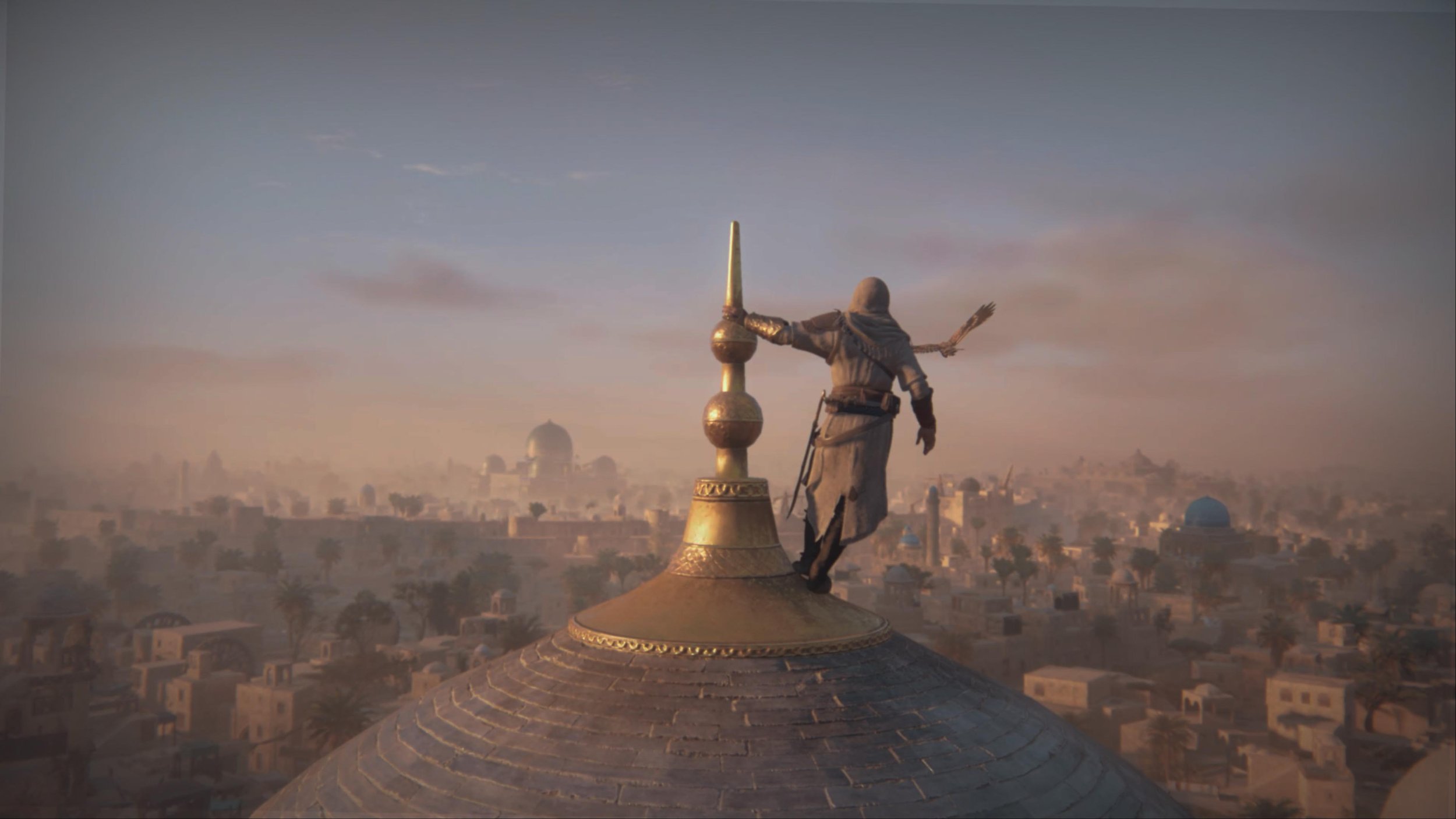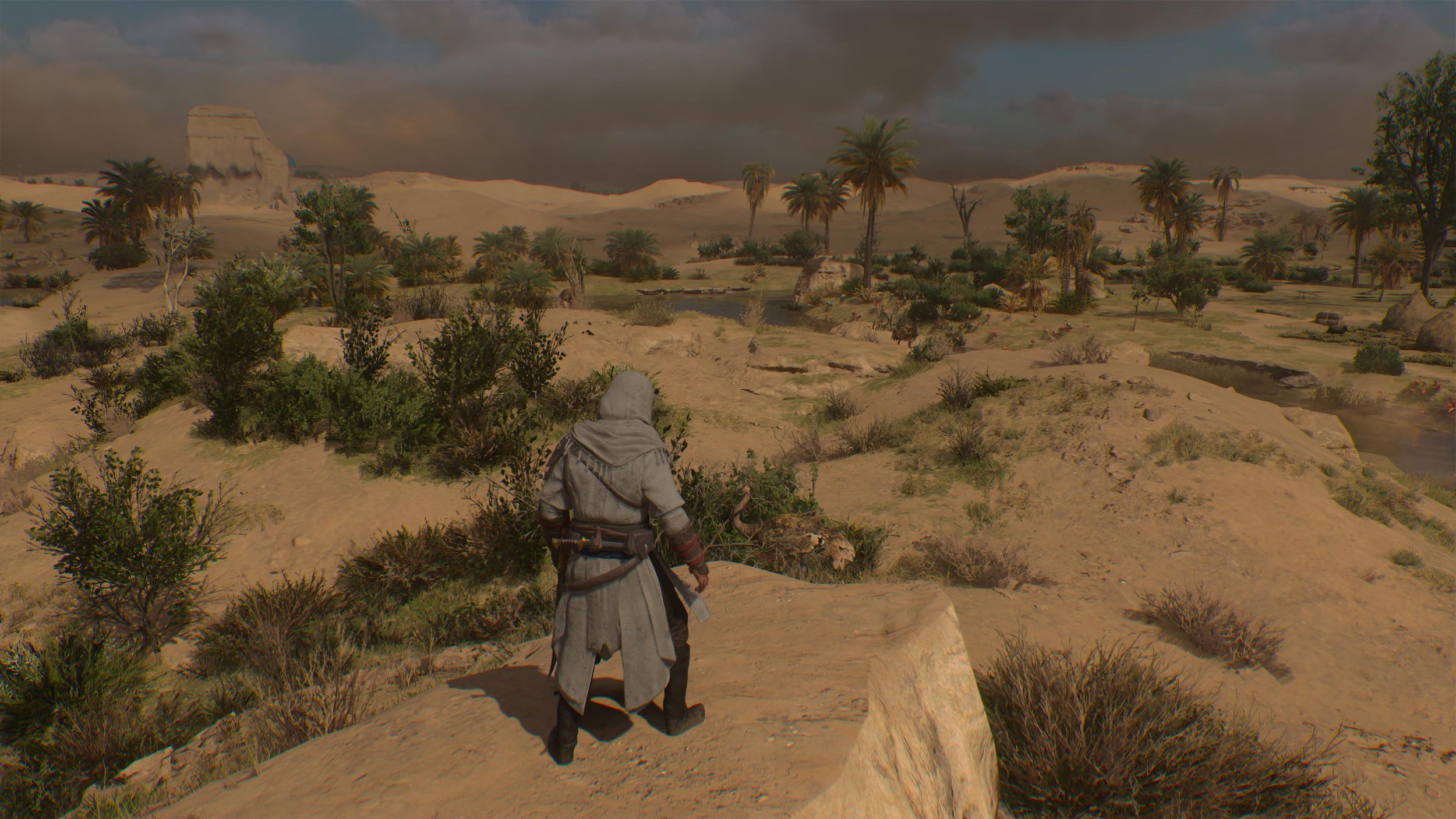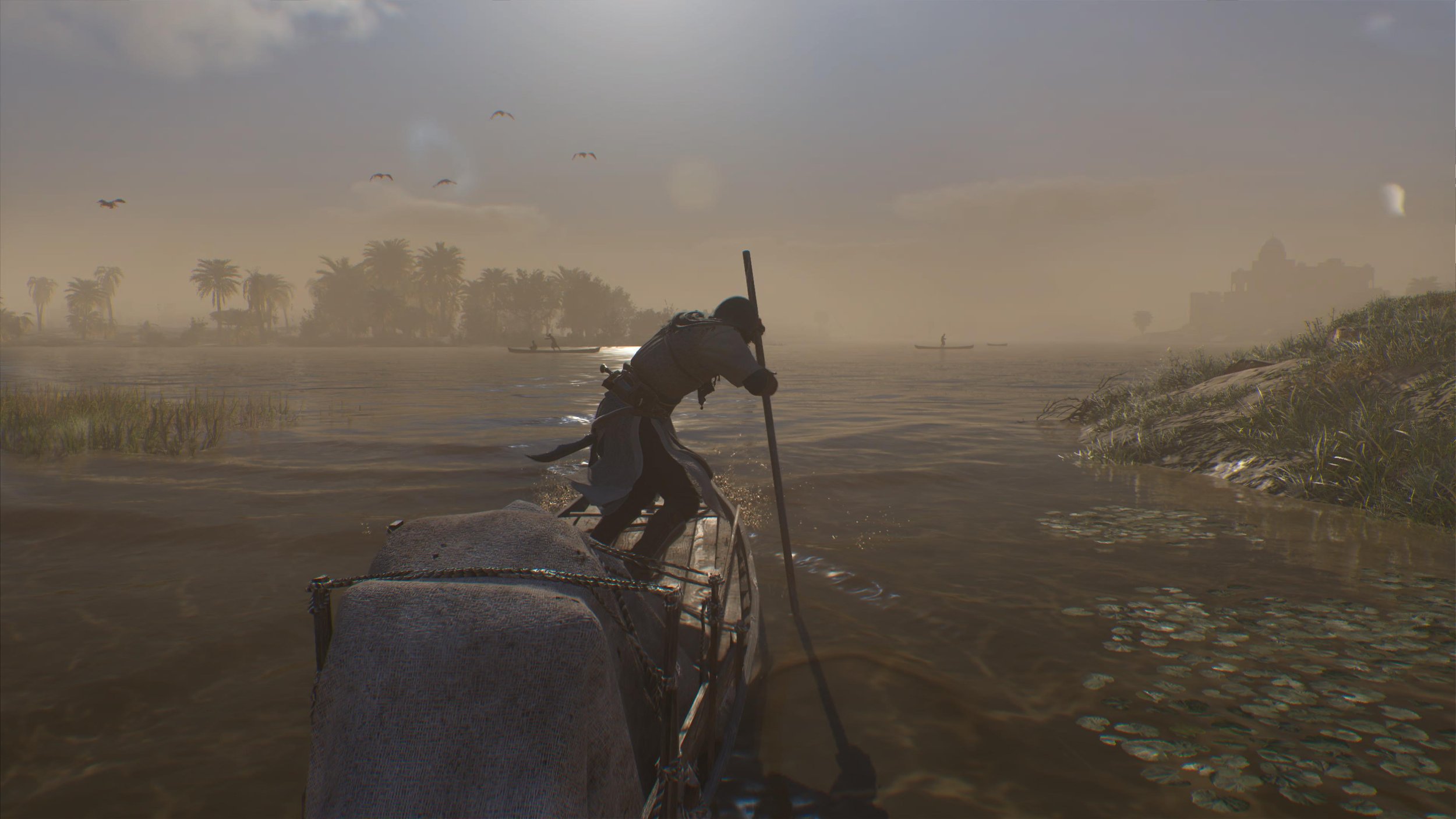First Thoughts on Assassins Creed Mirage - A Potential Comeback for Ubisoft's Mega Franchise?
Chipping away at Assassins Creed Mirage over the last few days has been something of weird experience. I’m not used to playing these big games with such a sense of mystery surrounding them; on the contrary, the internet usually is (and will be for this game) flooded with guides on absolutely everything you can see and do in these open worlds. As a result, Mirage has felt, more than just about any other AC, a game designed to wander slowly and deliberately. Fitting, for a series initially designed around patience, information gathering, and staying your blade until the right moment to strike presents itself.
I don’t like to cram games for a set deadline. Not that I can’t play 14 hour straight sessions when the opportunity presents itself - a bad habit, but an indulgence that I definitely fall into sometimes - but trying to brute force through an experience for the sake of an embargo is not conducive to worthwhile crit. As a result, this piece is discussing about 10 hours of wandering the sands and streets of 9th century Baghdad and its surrounds, with full thoughts coming when they are fully formed.
As pretty much all marketing and coverage of this game pre-release has shown, Mirage is a “back to basics” AC. While there’s still gear with upgrades and skill trees to fill out, it’s well and truly a paired back experience. There’s something about knowing your limited toolkit intimately that pulls you deeper into the experience; your hidden blade an erstwhile companion, a handful of throwing knifes at the ready and a simple sword for when you need to resort to a more brutal violence. Too often Kassandra and Eivor had such wide range, but with possibility comes exorbitance. Basim is more narrow, more refined - a thief with a particular skill set, not a warrior goddess.
As protagonists go, he’s simply good, if not extremely typical. Rogue with a true heart, where have I heard that before? Oh, everywhere. Right.
It works, though. He’s likeable, grounding, human. He has nightmares he can’t shake, interfaces with technology he doesn’t understand and is doing a decent job despite being thrown in the deep end. You want him to succeed, even if sometimes you can’t help but feel like he’s being taken advantage of by the people around him.
As a whole, the game can be taken as quite a safe play for Ubisoft. It’s nostalgic, which for a 15 years young franchise seems like a weird thing to say, before realizing that the serious has had twelve main games, let along all the side entries. This nostalgia is rooted in the early games, with very clear call backs to the first one in particular. It’s been a long time since I wandered Jerusalem as Altaïr; but the second I approached Baghdad’s first Assassin’s Bureau and had to enter by dropping down from some leaf-woven lattice, I was instantly taken back.
Where it sets itself slightly aside from its predecessors are in the way missions are carried out. Rather than missions being discrete sections with direct mechanics, they simply take place in the world following clues and threads from your “investigation" board. It feels way more diegetic than it has in the past - much more connecting with the world you are in, rather than just content slotted into an open space. It flows a lot better, with natural progression along a path of curiosity and intrigue.
Mirage is also much smaller than an AC has been in a long time. Not just in physical space or game length, though. The map is dense and there is still a list of collectibles around, however it’s way less overwhelming. It feels edited, and the restraint is welcome. The way side activities and collectibles are drip fed to you is also a neat deign choice; gone are they days of unveiling dozens of icons littered across the map while being perched on beam of wood sticking out from a tall building. (Said beams, however, are here to stay. Can you really have Assassins Creed with the beams?).
As always though, the best parts of Mirage thus far have been off the beaten path, or at least led by my own curiosity. Like most side activities, they don’t show up until you get close enough to them, but the “Tales of Baghdad” side missions are contained little stories that provide extra flavour to the world. One such story in a small town outside the city involving some investigation work was one I found early on, and has stuck with me since.
Similarly, the fun of stumbling across your classic “restricted” area surrounded by guards piques interest, with a quick scan of your eagle’s eye may uncover a chest or two. Loot chests with gear rewards or direct upgrades are clearly marked, and it feels genuinely satisfying to uncover substantive rewards for your sneaky-stabby efforts. I haven’t found anything outside the base outfit I’d want to use just yet, but they all have specific perks that would push you into certain styles of play should you choose to don them.
The world itself feels exactly as you want these historically set games to feel - like they represent a moment in time that we could never experience otherwise. The historical facts littered about the place about the time period, the city and the culture are fascinating and I’ve found myself becoming absorbed in the codex more than once. These factoid tidbits are both evocative and informative.
There is also very little “current day” stuff in this game, at least so far - so little I nearly forgot to mention it. about 30 seconds at the very beginning as part of an introductory cutscene, there’s very much an air of “look, that stuff doesn’t really matter. You’re here for the historically set Assassin game. Go. Enjoy.” As much as I’ve been a Stan for the convolution of the modern day storylines in the past, it’s kind of nice for this to be the situation here.
“Return to form” is certainly a phrase that has bounced around my noggin a bit as I continue along Basim’s path, and while I’ve already enjoyed what I’ve found here and keen to continue on, I’m not ready to call that just yet. There’s plenty of hooks keeping me invested - the haunting nightmares are certainly captivating, and the classic mystery around artifacts and mysterious masked figures is compelling - but I can’t speak to their resolution just yet.
Regardless, Mirage is so far in my mind more of what we need in AAA games in 2023 - shorter experiences that satisfy us, rather than seemingly endless worlds that peter out into grandest content farms. I’d be so curious to know what the dev cycles have looked like for this game versus a more mamoth AC, with the hope being the smaller scope has helped make it more manageable, but we may never know one way or the other.
I look forward to continuing on Basim’s journey and seeing what it blossoms into. Check back in soon for a more all-encompassing deep dive into the game, series and more when I get there.
A PS5 Code for Assassins Creed Mirage was provided by Ubisoft for purposes of this coverage.




